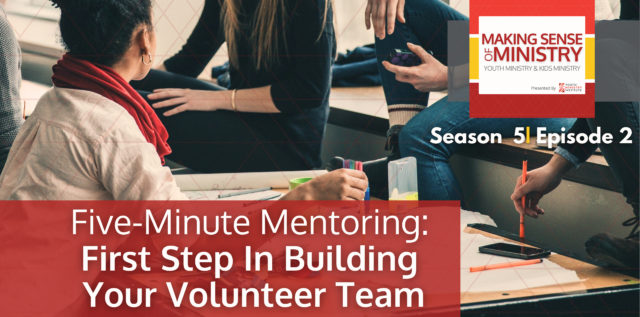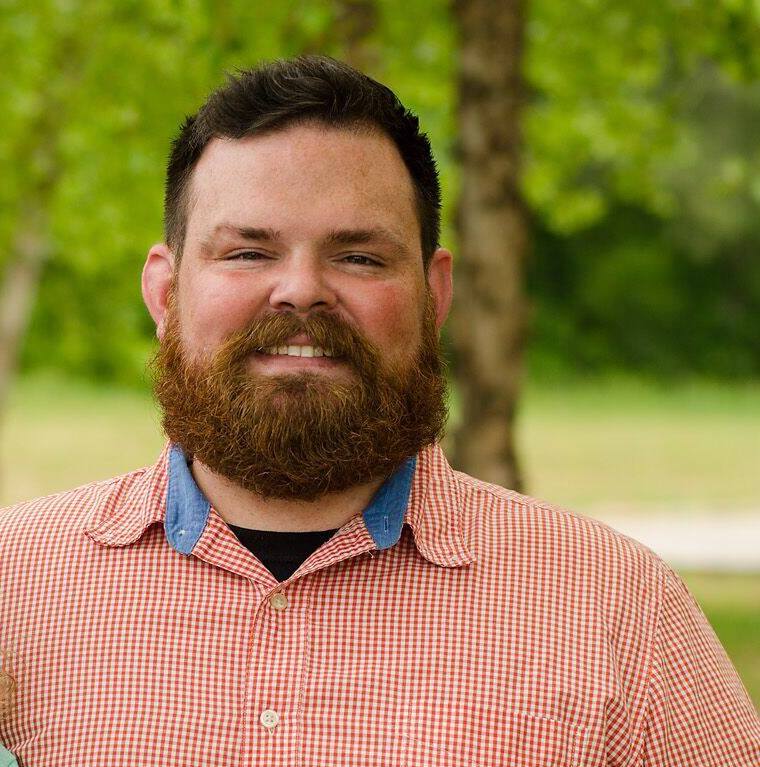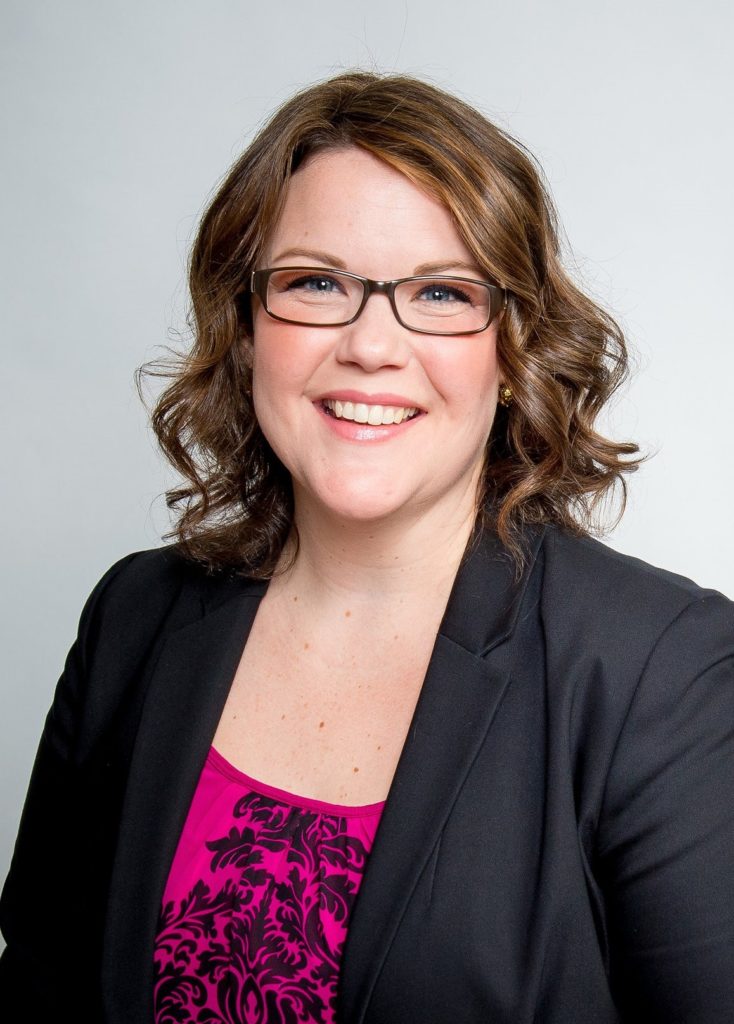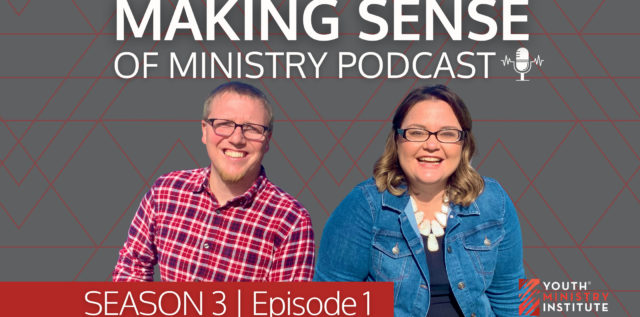You can find the Making Sense of Ministry podcast on all major platforms including Spotify, Apple Podcast, and Audible.
In this episode of the Making Sense of Ministry podcast, Brian and Kirsten discuss the few essential elements they would focus on in 2022. Join us as we discuss discovering and focusing on the things that will make the most significant difference in your ministry this year.
Resources Mentioned
Youth Ministry Certification
Youth or Children’s Ministry Coaching
Join Our Facebook Group
Subscribe To Content Filled Emails
Find the Youth Ministry Institute on Facebook, Instagram, Twitter, or Linkedin.
Find Brian on Facebook, Instagram, Twitter, or Linkedin.
Find Kirsten on Facebook, Instagram, or Linkedin.
Support the show
Brian Lawson: 0:14
Welcome to the Making Sense of ministry podcast. This is the podcast designed to help you lead well in your ministry transform lives and impact generations. I’m Brian Lawson back here again with the sports expert Kiersten Knox.
Kirsten Knox: 0:28
Hey everyone. Good to be here. Kiersten This is our first episode of season three. Wow. Yeah. So it’s been a little while since we’ve recorded so it’s good to be back. We’ve missed everybody. And season three. I love it. Yeah. And it was just a dream of having a podcast and having a podcast. That’s right. That’s right.
Brian Lawson: 0:52
And for those who don’t know, Kirsten is a sports aficionado and listens all the all the sports talk radio and all that. So if I ever need an update, I go to her and she tells me what’s going off some good sports. I know. Yeah.
Kirsten Knox: 1:07
The other day I was with some students and they’re like, What song do you want to put on the playlist? And I’m like, Listen, I don’t listen to a lot of music. But if you asked me about a sports talk show to on, I would tell you. Yes, positives and negatives. I’m like, listen, when I’m in the car, I’m usually listening to sports, not music.
Brian Lawson: 1:27
Kirsten. So I don’t know about you. But one of the hardest challenges that I face. And I think youth and children’s ministers faith base is the playlist.
Kirsten Knox: 1:35
I dread it.
Brian Lawson: 1:36
Do you see people asking all the times in all the groups, I need a height playlist, I need a playlist for laser tag, I need a playlist for this. I need a playlist for Parents Night.
Kirsten Knox: 1:45
I read that and I’m like, I feel your pain. And I think for you.
Brian Lawson: 1:51
Yes. So Spotify was my best friend. That’s where I had it personally. And I would always have my student leaders like, tell me hey, like, here’s the songs you need to play right now. Of course, you have to screen them because there’s one or two times I did not string them well enough.
Kirsten Knox: 2:06
Yeah, selective. You have to be very careful. I did that. This last Monday night, we had student ministry and I’m like, Listen, you want to put together that a student was there early. And I’m like playlists, you like, Oh, why have you I got this. I’m like, good. I’m like, listen, it’s either that we’re gonna listen to Lauren, which I always say her last name wrong. What’s the Lauren Diego. That’s not how you say it. Daigo I think I don’t even know. I don’t know. Sorry. Lauren is always like here’s an exam. Well, you knew who I meant. But yes, I always mispronounce her listening or Toby Mac. I’m like, This is what I got. So oh, now you’re showing your age.
Brian Lawson: 2:44
Now you’re showing your age? Yes. So the play the dreaded playlist. We feel your pain on that if you’re suffering through that right now. We’re all with you.
Kirsten Knox: 2:57
Before we dive into today’s topic, we know that many of you are looking for ways to grow in your leadership. One of the best ways we have found is through focus ministry leadership coaching. At the youth ministry Institute, we offer leadership coaching that we have developed and refined over the last 17 years. In addition to the incredible coaching, you’re going to receive our proprietary Developmental Profile that will highlight your strengths and opportunities for development. If you’re interested in growing as a leader, head on over to our website. YMinstitute.com/coaching We offer coaching for youth and children’s ministers for our podcast listeners only, you’ll receive $100 off your coaching. Just let us know that you heard it right here on the Making Sense of ministry podcast.
Brian Lawson: 3:47
And there’s a free $100 for you. You’re welcome pro score. Love it. Kirsten, you know, so our listeners know, we actually just wanted to get together and get the season started. And that’s really kind of what we decided to do. We have some great interviews this season already already have done some recording, and had the others lined up. And it’s it’s gonna be so much helpful information and insights and things to think through. But we wanted to get started with just Kirsten and I talking with you friends, and sharing some thoughts that we have. But it’s primarily around this idea, Kirsten I don’t know if you’ve heard this quote from Andy Stanley and, and I read it this morning, and it really hit me differently, I think than before. And this is what this is what the quote said, the ability to identify and focus on the few necessary things is a hallmark of great leadership. So we’ll read that one more time. The ability to identify and focus on the few necessary things is a hallmark of great leadership. And we’re done. We can just stop the episode right that that’s, that’s rich. That’s really
Kirsten Knox: 4:59
it seems simple, right? Just two or three things and yet, I think so profound. He’s absolutely right. And simple and challenging at the same time.
Brian Lawson: 5:11
Yeah, I was in a cohort this morning with some other leaders sharing and, and they were just talking about all the things that they have to pull together and people are looking to them to sort of have the answer. Like they feel the weight of I have to have all of this figured out and know where we’re going and have this grand vision. And this person was saying, Well, I’m not, that’s not me, I’m not a grand vision person. I just care about people. That’s why I signed up. And so when I was holding up that quote, I had read this morning, you know, beside what she was saying. I felt like that’s what she needed to hear. She was trying to pull all these big ideas together. And he’s grand things into this big unified vision that was fantastic. And, you know, could be plastered everywhere. When really, perhaps, for her, this is what she needed. The few things what are the few things?
Kirsten Knox: 6:07
Because when you think about it that way, there is a sense of relief that happens. Yeah, I think that’s true. As ministry leaders, we look at all the different areas and the variety of skill sets that it demands. And it’s very easy to be overwhelmed. And oftentimes feel like I just don’t have what it takes to do all of this. I’m really good in some areas. All right. But there’s such a variety, and there’s so much demand. We talked to a lot of children’s and youth ministers who wanted their questions. Oftentimes, it’s where do I start? Right? Like, yeah, all of this? And it all seems important? Yeah. What do I do with that?
Brian Lawson: 6:45
Everything’s everything seems and feels important, right? And then and then to other people’s agendas to come along. And they seem just as important to them. And you have to balance all that. Yeah, out. Absolutely. And, you know, I think it’s made even worse by what the season we’ve been in. Because some people have started in person programming, some started and then stopped. And then some people have just been going in personal time. And it’s just been all over the place. But for many people, the programs have not been functioning fully to what they were pre pandemic. And so there’s this sort of desire and need to get back to that point or rush back to that point. And I was, we were talking before we hit record, you know, recently, there’s been this push for innovation. And innovation is good. And it’s important, and it has its place. But it almost feels like this desire for innovation is really a reach for something else. Like, this desire for innovation is really us crying out to pre pandemic, like we want it like before, we want more people like before in our churches, or in our youth groups or in our children’s ministry. And so we’re gonna innovate quickly to try to figure that out. That’s what it feels like. I’m not saying that is it? But that’s what it feels like sometimes. And so I I’m a firm believer in innovation, I think there’s a good way to go about doing it. But I wonder if right now. It would take the weight off. People say, Hey, you don’t have to innovate right now. Perhaps you focus on a few things that you know are important.
Kirsten Knox: 8:18
Yeah. There just seems to be this panic. Yeah. Right. This fear, which we’ve, wherever you are, and gathering back in person, but people aren’t gathering the way they used to, or the numbers aren’t the same. We’ve got to get back to that. And so there’s this fear that what if we never do? What if it’s never we never have the people we had? What if they never come back? So I’m not panicked? And then I’m holding on to things tightly to try to move versus I wonder, can we take some space from that panic, which I think that’s part of what Andy’s quote is saying, right? Take some space, and then look at it from a bird’s eye view, right? Because we’re in the weeds, and we’re panicked. And we’re looking at all this stuff at all the stuff that’s competing for my attention, and I feel like I have to do to get people back. And to step back and look at it from a bird’s eye view and say, to move us forward, what are the two or three things that needs my attention? And that is what I can do. And then maybe if we do that, that it provides some relief of that panic. The hard part is we’re also navigating not only our own internal panic, but the panic of others have control over their panic and anxiety. So I mean, like, that’s not a perfect, you know, space. But I wonder if stepping back helps us to be able to do that in this season.
Brian Lawson: 9:47
Absolutely. And I think innovation is not overnight. I think for some people, we think innovation is I wake up or I take a shower and have this brilliant idea. And I’m innovative and But innovation is not innovation is a long process. It’s a long step process. I think that most people just maybe intentionally or maybe unintentionally stumble across often. And so it’s if we would just instead of being so caught up with needing to do that, if we would instead say, I’m going to focus on a few things faithfully, and we’re going to move that way. And then in time, perhaps a space opens up that we get creative and come come across something new or seek out something new.
Kirsten Knox: 10:34
Yeah, I wonder, yeah, it’s a long haul. It’s the long game, not the short game. Yep. And the truth is, sometimes I’m looking for the quick fix, right? What’s gonna, what’s gonna fix it for this week’s program? What’s going to fix it to get me where I want to? And if I can find it, it never seems to work out the way I would like, but it doesn’t change my desire for it. Right? Like, yeah, and
Brian Lawson: 10:55
Bobody listening has ever been looking for a quick fix. And nobody listening has ever been scrambling looking for the game, or the volunteer to teach at night. The lesson go, they don’t have it ready. None of us have ever done that.
Kirsten Knox: 11:11
As we all resonate with, right, yeah. How do I know what I need to focus on? If that’s true? Right, if great leadership is gonna come from me being able to focus on those two or three things? How do I even begin to understand what that is? Which is probably the million dollar question. Right? Like, how do I know that in my context, what that is?
Brian Lawson: 11:34
So as we think what what would be if it was the the Kirsten Knox, lead youth children’s ministry? Or the Brian Lawson, lead youth or children’s ministry? What would be one or two things? Or perhaps three, I mean, maybe you could push three that we would focus on in 2022. I think for me, at the very at the very foundation, I would spend a lot of extra time investing in the key people who I see are I would call them leaders, but they may not always be official leaders, right? The key people who, who others look to. The key people who motivate others, and I would spend extra time with them. And I would check in with them and see how they’re doing. Personally, not ministry, just them personally. Because I think if if I could check in on them, show my care and concern for them. And perhaps, perhaps inspire them to keep serving or to lead or do something that I think they can help me nudge the ball forward with others, that perhaps then they can go in and check on people. That would be one area I would probably start with. Because the people, right, the people are important.
Kirsten Knox: 13:06
Well, yeah. And then you’re saying wares are already people who already have influence and motivate people naturally. So I’m not creating all of this on my own. I’m kind of also being intentional about what our exists, and how do I tap into that, right? But not just for ministry, but as people How do I care about those people? For who they are? And then how does that then help me lead and where I focus? I think, I think that’s really smart. When we were talking about this, I was thinking, you know, first part for me to answer that would be to look at where do I feel if I was to sit back and say, at the end of this year? I wish this was true. About my ministry. I wish this was true about I thought about it personally, at the end of this year, what do I wish will be true about me, right, like, and how do I want to navigate that? So I think that helps me with where to start? What do I wish was true. And I think mine was similar when you said that I was like, well, he’s taken my thing. I adult leaders is part of that. For me. I know, we say that a lot so far is like we’re focusing on that. But how to identify those people. And maybe some of its even searching of finding people who I really want to be on my team, and helping ministering to students and families so that we can have a greater reach. So I recognize that if I can do that invest in leaders, and then our reach is greater than just my reach. So yeah, I think to move forward, that would be one of the things that I would think about, Who are those people? How do I do that? How I care about them? How do I invest in them? How do we move that now that doesn’t always you don’t always see that. So I think that’s the challenging part. And I would also say probably going to your supervisor and talking about that conversation or even to people who are already in the ministry. But the key about this is some of those things I think you’re not going to see next week. You’re not going to see the impact of right it’s it’s foundational, it’s long term. It’s about building something. And so can the people that you were ministering with? Or even that are your supervisor give you that permission in that time, or probably more need to know that that’s the plan, or else it just looks like on some level, like nothing’s happening. I think sometimes maybe we give them a bad rap. We’re like, I don’t have permission to build, right, because they want something. But I think someone’s probably just communication. They don’t know what’s happening. Right? That kind of conversation, I think would be pivotal.
Brian Lawson: 15:42
Yeah, and letting your supervisor know that you’re investing in people for this strategic reason, I think is completely acceptable. And if you’re, if your supervisor had that vision and understood why you were moving in that way, I think they’d be fully supportive. And I love that you said that it’s, it’s about long term. And that’s really what we’re talking about today. And I think that’s at the core is a good leader knows to look at a few things that make a long term difference, and also take a long time to pan out completely. And those in those investments are, aren’t important and significant. And I think one of the most fundamental things that a youth or children’s Minister needs to learn is that they’re there to mobilize and move people not do it themselves. Yeah. And I think if we can remember that, then that automatically tells us one of the first things we need to focus in on are the people, the people who are there, whether that be parents or adult volunteers, or student leaders, whatever that looks like, we need to invest in those relationships. Again, and again. And again.
Kirsten Knox: 16:50
That’s probably one like, I feel like we say that a lot. But I think because it never ends. That is always true about building strong ministries, and creating systems of how I do that. Yep. So how refining that system? Um, because I think investing in leaders is intimidating on some level, because it involves an ask and a risk of rejection. And I’ve been doing this for a long time. And I still sometimes that ask is hard, right? You’re like, so I think maybe having a system and knowing how you’re moving through it gives you motivation to move through that. That can be helpful. Yeah.
Brian Lawson: 17:32
Recently on our blog, we had Sarah Taylor, one of our graduates and authors wrote, it’s the relationships we build with our teens and their families. And I would say children as well. The best define and support our role. Relationships are the very foundation on which most of our ministry stand. And the deeper those relationships grow, the better we can minister to the, to the needs of those teens, children and their families. So I mean, I think we’re all on that same page, that those that those relationships are, are key. And important.
Kirsten Knox: 18:04
They are key and thinking intentionally about it, right? I think if we’re not careful, we just do what’s ever right in front of us, right? Because next week, there’s a program, there’s an event, right, like, I can fill up my whole week, just doing what’s right in front of me.
Brian Lawson: 18:19
So how do we do that? How do we then intentionally make sure that we’re not just focusing on the tasks, because I’ll make my task list of things I’ve got to knock out and get done. And I know, like, I would sit in the office, I’ve got Wednesday, I’ve got Sunday coming up. I’ve got to get these things done. Do you have anything Kirsten that you’ve done? I know I do. I’ll share man, I didn’t know if you had any, anything that you did that sort of refocus you to make sure that you weren’t all task, but also your people as well.
Kirsten Knox: 18:47
Well, I probably at times, can, I feel like I could go either way. But if I’m not careful, sometimes I can spend all my time with people and kind of in the middle of that space. Could do okay. But I would say like for me, I love I love sticky notes, and I love whiteboards. Or, I use the sticky note sheet. But just been some time in my best time of thinking. So during the time of day where I am fresh, and being able just to write I think that question what what do I wish was true? And then a year what do I hope is true? And kind of listing some of that out and then identifying two or three of them, like what would be my two or three goals? Because here’s what I want to get to the end of the year. And did I win? Right? Like did we move forward? Did I meet my goals? And sometimes here’s just real honest, sometimes goals can be intimidating to me because I have a fear of failure. And so if it’s kind of unclear then you don’t have to feel the failure. So I do have to talk myself through that. So I do say that sometimes for me I’ve had to learn to do that and but to write those goals and then think about okay, if I want these two or three things to be true, then just spend some time with that one goal and write it out on a sheet of paper and then write what are things that have to happen to get me there, right, what are supporting steps, those and that then so then I know like on a monthly basis, maybe I have, maybe I put those in different months. So then I know like, here’s what I’m focusing on, that helps give me focus of the program as a whole, not just what’s in front of me the next. Like, what’s the next program? I think the other thing that’s been helpful to me is, I don’t always do as well, but carving out time where I’m developing myself as a leader, like, if that’s reading, or whatever I need to do, because if I fill that up, then it just overflows. If I’m not careful, then I fill that up with the urgent things that seem to be on my to do list. Yeah.
Brian Lawson: 20:54
So for me, I think I’m the opposite. I’m like, I’m gonna put my tasks. And I’m going to focus on those all day long and get those done. If I want to do them, right, sometimes we just don’t want to do it. But I’m going to focus on those tasks and get those done. So I had to force myself to make a list like, here’s, like, I’m going to put three lines. And by the end of the day, I have to connect with three different people. You know, now what now that connection can vary. And we don’t want to like set strict rules for ourselves. But it could be a phone call, could be a text message. It could be a lunch, or coffee, whatever that looks like. But I had to force myself to say, hey, this week, each day, I’m going to connect with three people. And I have to actually write their names on my lines once I’ve done it. Or there were some seasons where I said, Okay, this week is just seven over the course the week, whatever that looks like. But I had to actually be intentional about making a spot for me have to write in their name that I actually reached out and connected to them. So whether you’re like Kirsten, you’re all people and yet figure out how to manage it make your task priority, or you’re like me, where I’m all tasks, and I have to make sure I make people priority. I think that we you know, we’ve got to find that rhythm and that, that tool to make that happen. So next thing, one more, yet one more thing that you would really focus on this year.
Kirsten Knox: 22:18
I’m not sure. The only thing I would say is I want to control my schedule, not my schedule control me. And I think that’s part of focusing on those things helps me to be able to do that. But there are seasons when I feel like my schedule controls me. And then I recognize in that time, I just those days, I feel like I’m just spinning my wheels, not that I haven’t gotten some things done. But it doesn’t move me in where I really, you know, like when we’re talking about moving an organization or the ministry forward. And so I thinking about how do I own my time? And sometimes for me, that has meant and you know, because I’m trying to focus more on task is when do I want what time of day do I want to do what tasks? Yeah, because I know, come three o’clock. I’m not if you want me to do deep thinking at three o’clock in the afternoon, that’s going to be difficult. You’re not going to get the best of me, right? I can reply to emails all day long at three o’clock. But what I find is when I come in the office, I feel an urgency to do it right then. And then it derailed me from being productive, and spending time on those two or three things that I need to spend time on. So that has helped me thinking about where I put stuff in my schedule in time. And that I get to determine that. Yeah, yeah, that’s excellent.
Brian Lawson: 23:34
For me, I think the other piece I’d focus on would be I want to get back to the mission. I’m tired of being distracted. I’m tired of being distracted by by the loudest voice, or by, you know, do we have children’s ministry or not? Do we have youth group or not? Are we inside or outside? You know, and I know those things have to be talked about. And we have to make those decisions. And that’s not you know, that’s just part of leading right now. But I would like to get to a point where we’ve refocused on the mission, say, are we accomplishing our mission? And if not, what part of it? Are we not accomplishing? Like, which piece is the weakest? And how do we how do we rebuild into that area? And I think that if we if we do that, and try to let the outside noise, not have all of our attention, that perhaps we can accomplish a lot this year. So I think that’s where I would go. So I don’t know, maybe this is helpful. Maybe this is not. But but there’s some thoughts. Kirsten anything else you want to add before?
Kirsten Knox: 24:43
I think that’s a wise I think, when we when I know I’m not being focused on mission, I have a lack of motivation, Mission motivates me and inspires me. That’s probably Brian, when you said that, that really resonated. When I think about times when I feel unmotivated, I usually have to then think about how much have I allowed the loudest voice to dictate what I’m doing and sometimes that’s the loudest internal voice and sometimes that’s the loudest external voice versus being very focused on mission. So I think there’s, there’s a lot of power there of getting back and, and also brings life to us because we got in this right, we got into ministry because we believe in the mission of ministry. Yeah. How do we do that? And how do we stay focused in the midst when distractions are everywhere?
Brian Lawson: 25:34
I have a, I have a list of questions that I was writing down when I was thinking about this quote that I just share with our listeners and, and they’ll do what they want with it. And friends, if this isn’t helpful, I apologize in advance. So just some questions. I was jotting down what would help our students or our children developing their faith right now? What would help them to open their faith? What would give families adult leaders or student leaders a greater sense of ownership? What would give us momentum? And if we have a clearly defined mission, what best fulfills that mission in this season? And then the opposite side of the questions to maybe, maybe important ask, you know, what do we need to let go of? What ministry did we have before? Or perhaps what ministry did we pick up in the middle of COVID that it’s time to let go of? And then the other one is what what ultimately distracts us from our mission? So asking some of those questions, perhaps is helpful, can help somebody land on what their few things are, they need to focus on. I think what we share Kirsten is where we would lean and land and we would probably recommend, but I don’t think they’re the only things. I think there may be some other things and different contexts that are important.
Kirsten Knox: 26:54
Yeah, absolutely. And I mean, we say all the time that you can, you can do two or three things well, right and your ministry. So be just don’t let those happen. See where movement and motivation is. But also be intention tensional, about leveraging that and putting energy in that. And those two or three things, I think can give you freedom. And also, there’s a simplicity and a challenge in there at the same time.
Brian Lawson: 27:24
Absolutely. Well, friends, that’s all we have for you today. Do know that at the Youth Ministry Institute and Kirsten I at the Making Sense Ministry podcast, we believe in you, we believe you’re called the ministry and we know that there’s so much this probably brought you down or major this season difficult, but just keep going. God is faithful. And and God is working through you. So so keep up the great work. Hey, and if you’re looking for free resources, maybe you’re in a job transition and you’re looking for a new role. Or maybe you’re looking for leadership development through coaching or certification, whatever that might be. Know that we are here to help you and you can find all of that information at YMinstitute.com. And until next time, friends, I hope we’ve helped you make sense of this thing we call ministry.





















